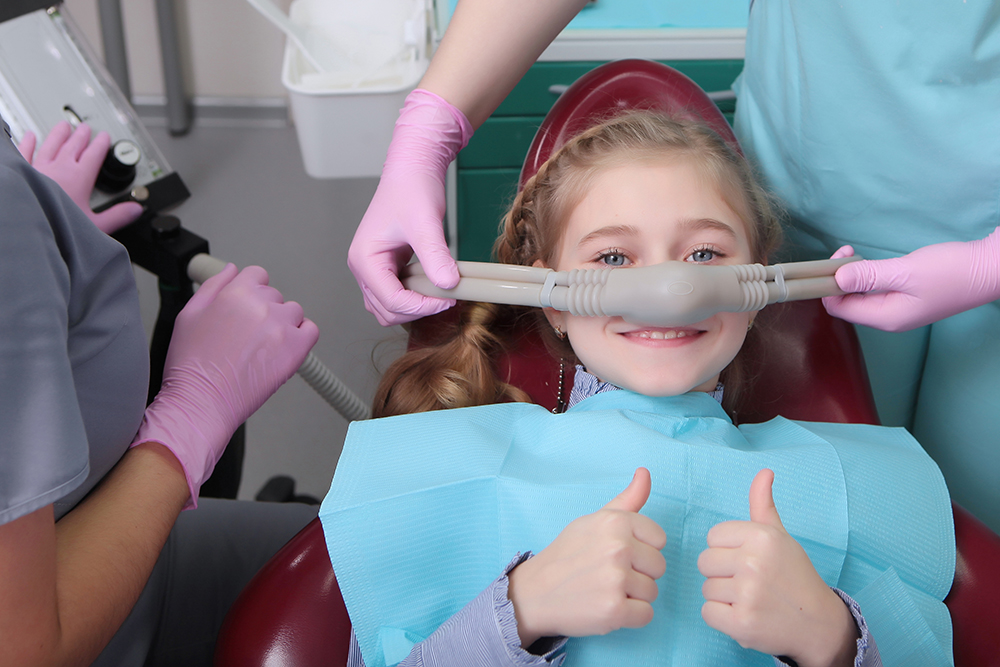Dental anxiety is a common phobia that affects millions of people worldwide. The fear of dental procedures can lead to avoidance of necessary care, resulting in poor oral health and overall well-being. Sedation dentistry by the dentist in Fairhope, AL offers a solution for individuals seeking relaxation and comfort during dental appointments. This article will explore the different types of sedation dentistry, their benefits, and how they can help manage dental anxiety. The article will also explore the safety of sedation for kids and during pregnancy. So scroll down!
| Sedation dentistry is a specialized branch that relieves stress and pain during dental procedures through medications. It helps you stay calm and relaxed so that the dentist can easily perform dental treatments. It is also called conscious sedation or “twilight sleep” since technically you will be awake, but in a relaxed state feeling carefree. It creates short-term amnesia (forgetfulness) where you will experience insensitivity to pain without loss of consciousness |
What are the types of sedation dentistry?
There are three basic types of sedation, namely:
- Nitrous oxide sedation: Commonly known as laughing gas, this mild sedative is inhaled through a mask, producing a relaxed and calm state.
- Oral sedation: Medications like diazepam or zolpidem are taken orally, inducing a deeper relaxation and reduced anxiety.
- IV sedation: Intravenous sedation administers medication directly into the bloodstream, providing a stronger and faster-acting sedative effect.
What are the benefits of sedation dentistry?
- Relaxation and calmness: Sedation dentistry helps patients feel at ease, reducing anxiety and fear.
- Pain relief: Sedatives can minimize discomfort and pain during procedures.
- Amnesia: Some sedatives can cause short-term memory loss, making patients forget the procedure.
- Increased cooperation: Sedation can help patients remain still and cooperative during treatment.
- Reduced gag reflex: Sedation can reduce the gag reflex, making procedures like impressions and X-rays more comfortable.
How does sedation dentistry manage dental anxiety?

Here is how sedation works to manage dental fear and anxiety:
- Reduces fear and doubt: Sedation helps patients feel more relaxed, reducing fear and anxiety.
- Minimize pain and discomfort: Sedatives can reduce physical discomfort and pain.
- Enhances communication: Sedation can improve communication between patients and dentists.
- Increases trust: Sedation dentistry builds trust, making future appointments less intimidating.
- Improves oral health: By managing dental anxiety, sedation dentistry encourages regular dental care.
Is it safe to use sedation during pregnancy?
Sedation dentistry during pregnancy is generally considered safe, but it’s crucial to consult with a dentist and obstetrician to ensure the best possible care.
To ensure safety:
- Inform your dentist about your pregnancy and any medications you’re taking.
- Consult with your obstetrician before undergoing sedation dentistry.
- Schedule appointments during the second trimester, when possible.
- Choose a dentist experienced in sedation dentistry and pregnancy care.
- Discuss alternative sedation options, like nitrous oxide or non-pharmacological relaxation techniques.
Is sedation helpful for kids?
Yes, sedation dentistry can be helpful for kids in certain situations. Children may benefit from sedation dentistry if they:
- Experience anxiety or fear during dental visits
- Have special needs or disabilities that make dental care challenging
- Require extensive or complex dental procedures
- Have a strong gag reflex or difficulty sitting still
- Need dental care but are too young to cooperate
However, sedation dentistry for kids should be:
- Used judiciously and only when necessary
- Administered by a trained pediatric dentist or anesthesiologist
- Monitored closely for safety
- Combined with behavioral techniques to help kids cope with dental visits
Bottom line
Sedation dentistry offers a solution for individuals struggling with dental anxiety. Patients can make informed decisions about their dental care by understanding the types of sedation and their benefits. With sedation dentistry, managing dental anxiety is possible, leading to improved oral health and overall well-being. Consult a sedation dentist to determine the best approach for your unique needs.
